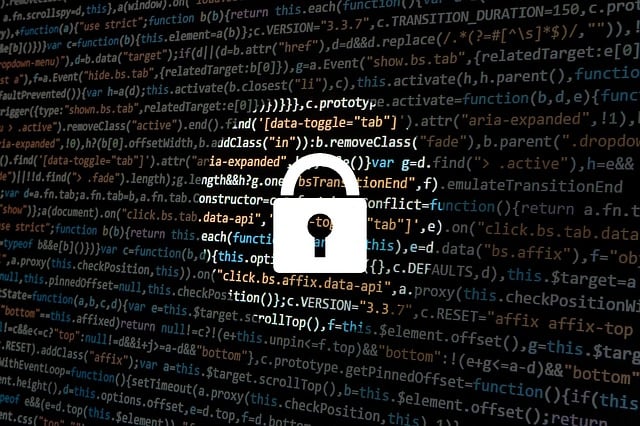
Customer’s personal data protection concerns were considerably simpler before when businesses kept their data in lockable file cabinets. In contrast to nowadays, where one can save data online.
Every person in a business is accountable for preserving trust and protecting the security of consumer data. Each department may contribute, whether cybersecurity teams use role-based access to information or CX teams set restrictions on the quantity and types of data they gather. Employee privacy training on a regular basis may also assist a firm preserve customer data privacy. In this article, we will take you through major ways that you can use to save your customer’s personal data.
Ways You Can Protect Your Customer’s Personal Data
Restricting Data Access
In accordance with their responsibilities and connections to the data, employees to have access to client information. These rights might be based by companies on the objectives of each function. Teams working in customer service may need account information about customers, whereas marketing departments may need demographic information.
This method also implies that group members’ rights should adjust when their requirements change—for instance if anybody transfers to a position with changing access control rules.
Read: What is Privacy Compliance? The Ultimate Guide
The following are examples of various permission types:
- Total command -The user has control over the data, such as its storage, access, revisions, deleting, and rights granting.
- Modify- The individual has access to, and control over, the data.
- Access- Access to data is permitted, but editing or erasing it is not.
- Access and change – Data may be accessed and changed, but not deleted.
What actions do you take when a member of your staff departs? Do you alter your passwords? Or do you believe, “Hey, she enjoyed working here, she’ll never take my client’s info! Trust no one

We’ve all heard stories of resentful ex-workers seeking retribution against their former employers. Ex-employees are occasionally driven to such extremes by a burning feeling of victimhood in order to get retribution. Reset passwords frequently, and try to make them as secure as you can, whenever somebody leaves your firm. Give them no chance to steal private information about your clients. The danger is simply not worth it.
Be in Touch with your Consumers.
Clients seldom read legal compliance documents like privacy policies. But at critical times, including when they’re requested for information and then when you add new features to a service or product and change the policy, they do demand straightforward and understandable explanations of your company’s data practices.
Read: AI Law: Compliant Truths on Artificial Intelligence
A clear and open line of contact with clients regarding the data you gather and your plans for utilizing it is advised by industry associations and privacy activists. This is crucial for small businesses that lack recognizable brands that consumers know and trust. The majority of customers gladly provide the personal information required for a product they desire. For example, a business may maintain track of consumer purchases and utilize that information to make product suggestions that millions of people accept.
Create and put in place Cybersecurity Policies
Businesses should implement cybersecurity rules in addition to limiting data access. These guidelines ought to be enforceable for both internal and external customers by security teams.
Security personnel should be aware of and handle the safety requirements specified in service contracts when working with online vendors. To make sure that all parties, including workers, executive leadership, and network operators, comprehend the expectations and can live up to them, team members can break down these contracts into manageable phases.
Delete data that is No Longer Required.
You must realize that if your data is gone, it is almost hard for it to be disclosed. Therefore, you want to think about removing files that are no longer in use if you want to safeguard the data of your clients from cyber criminals. For instance, instead of keeping the files on your computer open to security breaches when you no longer need relevant data from your customers, such as individually identifying details or health data, you may erase the documents and then replace them with folder software. Using a system that routinely deletes undesirable or outdated files is a terrific technique if you wish to take your customer’s personal data safety to a higher level.
Create and Implement a Reliable Security Infrastructure.
A robust security architecture can guarantee data protection with the correct technologies. The following resources are available to organizations to support this infrastructure. In order to sustain the health state of computers, antivirus software can perform routine scans on all servers and workstations.

In addition to defending computer networks against harmful malware, malware detection and anti-adware programs may safeguard consumers’ personal information. Pop-ups, which might jeopardize the stability of the system, can be prevented with pop-up blockers. Furthermore, firewalls provide an additional layer of security and operate as a line of defense against hackers and data.
Select the Best Web Host
Your security measures might succeed or fail depending on the web host you select. You need to select one that loves your security and treats your business seriously because there are practically hundreds of them out there.
Here are some examples of several web hosts:
- Shared hosting – This type of hosting puts you at risk of cross-site server attacks since it puts you on a system that so many other sites may share.
- A virtual private server (VPS) erects a barrier separating your website from the other websites using the server. Although it costs a little more than shared hosting, it is unquestionably safer.
- Private server – Compared to private virtual servers, private servers are significantly more costly. Your website is hosted on a different server from any other website, together with all of your client’s confidential data. The most secure and reliable kind of server is this one. If you running an online company it’s wise to invest in a private server and keep your e-commerce account unreachable.
- Upgrade your Software.
Updating is essential. We must emphasize this. When software systems and computer systems are not kept up to date with the most recent innovations, they become even more susceptible to assaults. The majority of the time, updated software comes with bug patches and upgrades that prevent your computer from being as secure as it may be and leave your customers’ data exposed. The only time this does not apply is if a software upgrade has a known security risk. If so, it might be best to hold off until the following update.
Conclusion
You cannot take any chances with the privacy of your clients’ personally identifiable information. Get an IT security specialist to have a look at things if you’re really worried that the safeguards you’ve put in place aren’t sufficient.
Professional security specialists are knowledgeable about the most recent techniques employed by crackers and hackers. They understand how to thwart threats and what your systems require. Get in contact with a professional if you’re having trouble sleeping because of this. Your company’s long-term viability may depend on it.
Related Articles you Might be Interested in:
How to Notarize your Business Documents Online
6 Ways to Ensure your Company is VAT Compliance
Understanding Online Company Compliance Regulations




